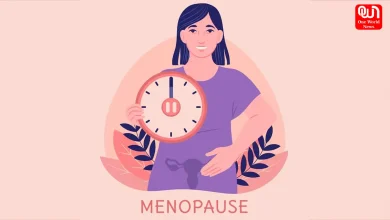Anxiety before period? Follow these tips!
How to treat your anxiety before period? Getting your period can be stressful and anxiety provoking. But it is important to mange this anxiety the correct way! Find out how!
How to manage anxiety before period? Let’s find out!
Dealing with anxiety before your period, commonly known as premenstrual anxiety or premenstrual dysphoric disorder (PMDD), can be challenging and disruptive to your daily life. However, there are several strategies you can use to manage and alleviate anxiety symptoms during this time. Here are some effective ways to treat anxiety before your period:
- Maintain a Healthy Lifestyle: A healthy lifestyle can help alleviate anxiety symptoms and promote overall well-being. Make sure to prioritize regular exercise, healthy eating habits, and sufficient sleep. Physical activity releases endorphins, which are natural mood lifters, while a balanced diet and adequate sleep support hormonal balance and emotional stability.
- Practice Stress-Relief Techniques: Engage in stress-relief techniques to calm your mind and relax your body. Deep breathing exercises, meditation, progressive muscle relaxation, and yoga are effective methods for reducing anxiety and promoting relaxation. Incorporate these practices into your daily routine, especially during the premenstrual period, to manage stress and anxiety levels.
- Monitor Your Menstrual Cycle: Tracking your menstrual cycle can help you anticipate and prepare for the onset of premenstrual symptoms, including anxiety. Use a menstrual calendar or a smartphone app to monitor your cycle and identify patterns in your mood and symptoms. By being aware of when anxiety tends to peak, you can implement coping strategies proactively.
- Dietary Modifications: Certain dietary modifications may help alleviate anxiety symptoms before your period. Limiting caffeine intake, avoiding sugary foods and refined carbohydrates, and increasing your consumption of fruits, vegetables, whole grains, and lean proteins can help stabilize blood sugar levels and minimize mood swings associated with hormonal fluctuations.
- Herbal Supplements: Some herbal supplements have been shown to have calming effects and may help reduce anxiety symptoms. For example, supplements such as chamomile, passionflower, and valerian root are known for their natural sedative properties. However, it’s essential to consult with a healthcare professional before taking any herbal supplements, especially if you’re already taking medications or have underlying health conditions.
Read more: Why are there so many ladybugs and lady beetles? (oneworldnews.com)
- Cognitive-Behavioral Therapy (CBT): Cognitive-behavioral therapy is a type of psychotherapy that focuses on identifying and changing negative thought patterns and behaviors that contribute to anxiety. CBT can help you develop coping skills, challenge irrational beliefs, and learn relaxation techniques to manage anxiety effectively. Consider seeking therapy from a qualified mental health professional who specializes in treating anxiety disorders.
- Medication: In some cases, medication may be prescribed to alleviate severe anxiety symptoms associated with premenstrual dysphoric disorder (PMDD). Selective serotonin reuptake inhibitors (SSRIs), such as fluoxetine (Prozac) and sertraline (Zoloft), are commonly used to treat PMDD by regulating serotonin levels in the brain. However, medication should only be used under the guidance of a healthcare provider, and the benefits and risks should be carefully considered.
- Support Network: Surround yourself with a supportive network of friends, family members, or support groups who understand and validate your experiences. Talking openly about your feelings and seeking support from others can help reduce feelings of isolation and provide emotional comfort during challenging times.
Managing anxiety before your period requires a multifaceted approach that addresses physical, emotional, and lifestyle factors. By incorporating these strategies into your routine and seeking support when needed, you can effectively manage premenstrual anxiety and improve your overall quality of life. If your symptoms persist or worsen, don’t hesitate to seek professional help from a healthcare provider or mental health professional.
Like this post?
Register at One World News to never miss out on videos, celeb interviews, and best reads.








